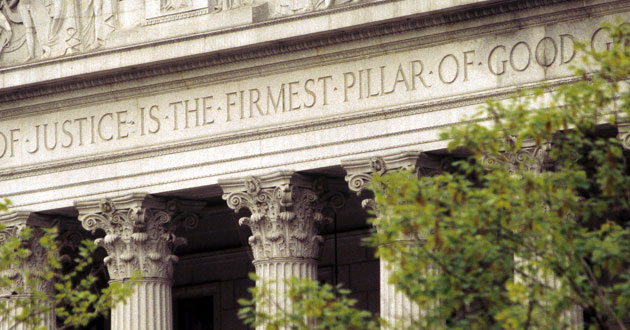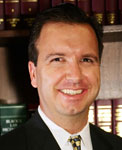The next president will very likely have the opportunity to make two to three appointments to the Supreme Court of the United States (SCOTUS). Before the election, many conservatives, even those somewhat leery of a Trump presidency, were urging others to unite behind the construction magnate for one simple reason: SCOTUS.
Why? For better or for worse, SCOTUS has become the place where many of our most profound public policy decisions have been made. Progressives have viewed the court as a results-oriented super-legislature, achieving vast nationwide changes not generally available to them elsewhere. For example, they used the court to construct or maintain some of progressivism’s most beloved social projects, including abortion, Obamacare and, more recently, same-sex marriage.
Conservatives, for their part, view the court’s role in a much more limited sense, as beholden to the Constitution and confined by its text, in a strict constructionist or originalist sense. They believe the proper role of justices is only to interpret and apply the law and the Constitution, rather than create new law. Conservative justices, like the recently departed Justice Antonin Scalia, view the legitimate role of the federal government as limited (see Article 1, Sec. 8) and respect the right of states in our system of federalism.
During the third and final debate, both candidates discussed their SCOTUS preferences. Donald Trump committed to nominate judges in the mold of Scalia, who respect the Constitution. And judging by Trump’s list of candidates, he means what he says. Trump wants to see Roe v. Wade overturned and the issue returned to the states. Hillary Clinton, however, didn’t mention the Constitution when discussing her preferences. Rather, she focused on the types of results that she would like to see: abortion on demand (including partial birth abortion), same-sex marriage, and the overturning of Citizen’s United (campaign funding).
But Donald Trump’s election promises to impact the American legal landscape far beyond who sits on SCOTUS. In addition to dozens of lower federal court appointments, pro-life President Trump will likely reverse many of President Obama’s administrative actions and executive orders. For example, working with Congress, he will likely repeal and replace Obamacare or at least relieve the Little Sisters of the Poor and others from its Orwellian religious conscience violating abortion/abortifacient mandates.
But life isn’t the only issue at stake. Christians, who have increasingly seen their rights of conscience and religious freedom mocked and diminished in the culture and the courts, have renewed reason to hope for better days Hillary Clinton, like President Obama and so many fellow liberals, privileges sexual liberty over religious freedom. President Trump, a new believer himself, has promised to protect religious freedom and it is likely that his conservative court appointments will do the same.
The president-elect’s first nomination will be to fill the now-vacant spot of brilliant Justice Antonin Scalia. He will see much cooperation in confirmation hearings from the Republican Senate. This first move will restore the current 4-1-4 split with Justice Kennedy, usually in the middle, functioning as the moderate/liberal swing vote. Other nominations will follow as other justices retire or die. Justice Thomas, who signaled earlier this year that he may be thinking about retirement, following Scalia’s death and in light of the brokenness of Washington, may now see a reason to hang in there. By the end of Trump’s four-year term, three liberal or moderate justices will be over 80 years old: Breyer (83), Kennedy (84), and Ginsberg (87).
For conservative court watchers, who are grieved by the national damage done by an activist SCOTUS—including the death of 60 million babies since 1973, there is much to celebrate in Trump’s victory.
— by Dean R. Broyles, Esq.
Broyles is a constitutional attorney serving as the President of The National Center For Law & Policy (NCLP), an organization fighting to promote and defend religious freedom. Copyright© The National Center For Law & Policy. Reprinted with permission.


